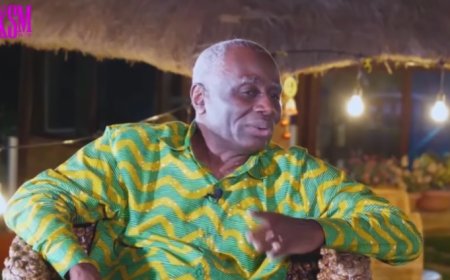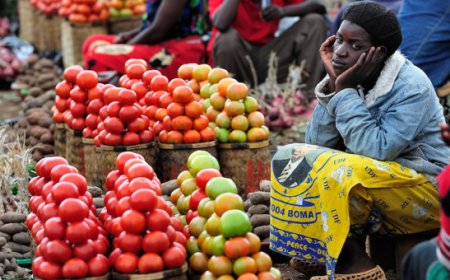Eat ‘Gobɛ,’ Koko, Koose and Stop Taking Energy Drinks - Prof Akosa
Professor Agyeman Badu Akosa advocates for prioritizing health in Ghana by returning to traditional foods like ‘gobɛ,’ koko, and koose while avoiding energy drinks. At the Graphic National Dialogue Series, he emphasized the link between processed foods and non-communicable diseases.

Renowned cellular pathologist and lifestyle wellness consultant, Professor Agyeman Badu Akosa, has reiterated the need for the consumption of local Ghanaian foods to address the pressing health issues in Ghana, particularly the prevalence of communicable and non-communicable diseases.
Leading a discussion on practical ideas intended to improve quality health in Ghana at the Ghana Shippers Authority Hall at Ridge in Accra on Tuesday, the former Director-General of the Ghana Health Service (GHS) emphasized the detrimental health impacts of sugar-sweetened beverages, fried foods, and processed foods. He highlighted their strong association with non-communicable diseases such as hypertension, heart diseases, and diabetes.
Professor Akosa underscored the importance of health promotion. Together with health policy and management expert, Professor Aaron Abuosi, they were the main speakers on "Quality Health for All" at the latest edition of the Graphic National Dialogue Series. This event, organized by the Graphic Communications Group Ltd, serves as a forum for discussing development issues with a focus on achieving national consensus in a non-partisan environment.
The Graphic National Dialogue Series aims to gather and compile ideas into a document to shape policymaking at various levels of society. The latest session included a plenary session where expert speakers delivered presentations on specific topics related to the theme from different perspectives.
Professor Akosa stressed the necessity of consuming local Ghanaian foods such as ‘gobɛ’ (a popular bean dish), koko (a type of porridge), and koose (bean cakes) to reduce the prevalence of non-communicable diseases. He pointed out that Ghanaians have increasingly substituted local nutritious foods with imported, highly processed foods laden with sugar. “I will urge us all to go back to our former ways of eating kontomire or cocoyam leaves, garden eggs, okro, ‘abedru’, and all that keep us healthy and also minimize the dependence on the pizzas, noodles, and fried foods,” he advised.
Professor Akosa also advised against the consumption of energy drinks, which are high in sugar and other unhealthy additives.
By advocating for a return to traditional dietary practices, Professor Akosa aims to foster a healthier future for all Ghanaians.
What's Your Reaction?






































































